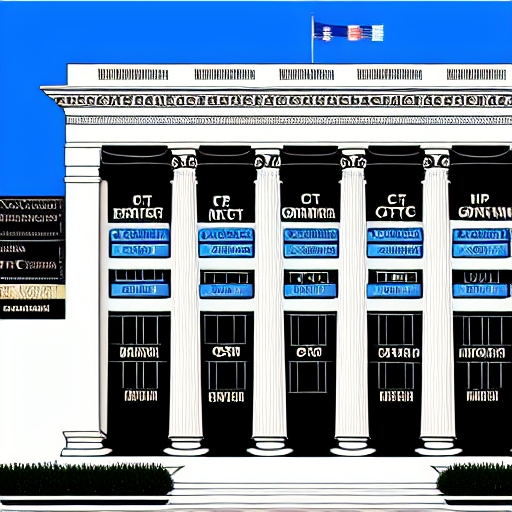Introduction: Finding the Best Forex Brokers for US Traders and Global Options in 2025
Navigating the world of forex trading as a US citizen in 2025 demands careful attention to one of the tightest regulatory environments anywhere. The global forex market, the biggest of its kind, draws traders with its endless opportunities, but picking the right broker is key amid these rules. This guide breaks it all down, starting with top US-regulated brokers that fit American traders perfectly, then branching out to standout international choices like Moneta Markets. It’s ideal for expats or those abroad wanting more flexibility and access. No matter if you’re just starting out or have years under your belt, grasping the ins and outs of rules, platforms, fees, and available assets will pave the way for smarter trading decisions this year.

Understanding US Forex Regulation: NFA & CFTC Compliance in 2025
The US sets a high bar for forex trading oversight, led by the Commodity Futures Trading Commission (CFTC) and the National Futures Association (NFA). These organizations work tirelessly to shield everyday traders from risks, promoting fair play, clear dealings, and broker reliability in the derivatives space.
The CFTC, a key government agency, watches over derivatives like futures, options, and swaps. It pushes for markets that are open, honest, competitive, and stable, while guarding against scams, manipulation, or unfair tactics. In retail forex, it lays down the big-picture guidelines that all brokers must obey.
The NFA steps in as the industry’s self-watchdog, guided by the CFTC. Any broker dealing with US folks or based here needs CFTC registration and NFA membership. The NFA makes sure everyone follows the rules, upholds moral standards, and runs regular checks on finances and operations. Together, they create a strong shield for traders.
That said, these protections bring some trade-offs for US retail participants:
- Leverage Limits: To curb excessive risk, the CFTC caps leverage at 1:50 for major pairs and often 1:20 for others in 2025—far below what many overseas brokers provide.
- FIFO Rule: Positions must close in the order they opened for each pair, blocking cherry-picking to tweak strategies.
- No Hedging Allowed: You can’t run opposing buy and sell trades on the same pair in one account.
- Narrower Asset Choices: Majors are fine, but extras like crypto or niche index CFDs are scarcer than abroad.
Sticking with an NFA/CFTC-approved broker means top-notch safeguards: funds kept separate, solid capital rules for the firm, and ways to settle disputes. Sure, it curbs some freedom, but the focus on safety and clarity keeps your money secure. For deeper insights, check the NFA’s official website.

Building on this foundation, let’s explore what makes a broker stand out when you’re selecting one in the US market today.
Key Criteria for Choosing a Top Forex Broker in the US for 2025
Regulatory Compliance & Fund Security
For anyone trading in the US, nothing trumps solid NFA and CFTC alignment. This setup guarantees tight financial scrutiny, enough reserves on hand, and client money walled off from the broker’s own pot. In tough times like bankruptcy, that separation keeps your cash out of harm’s way. Always hunt for clear proof of their NFA ID and CFTC nod. Go further by checking extras like negative balance shields and top-tier encryption to lock down your details.

Trading Costs: Spreads, Commissions, and Fees
Every pip counts when fees eat into gains, so scrutinize spreads—the gap between buy and sell prices—and any per-trade commissions. Brokers mix it up with models like:
- Fixed Spreads: Steady no matter the market mood, common with market makers.
- Variable Spreads: They shift with volatility, slim in quiet times but wider in storms; ECN or STP setups often deliver these.
- Commissions: Added fees on top of razor-thin spreads for volume trades.
Don’t overlook overnight swaps, funding charges, or dormancy penalties. Tally the full picture for your go-to pairs to spot the real winners.
Trading Platforms & Tools
Your platform is the command center, so in 2025, it needs to be smooth, packed with features, and easy to handle.
- MetaTrader 4 (MT4) and MetaTrader 5 (MT5): Staples for pros, loaded with charts, indicators, and EA automation. MT5 edges out with broader assets and timelines.
- cTrader: A hit for ECN fans, boasting quick fills, deep pools, and a clean look.
- Custom Platforms: Broker-built ones shine in simplicity, custom perks, and ties to their ecosystem—test charts, orders, calendars, and news.
- Mobile Access: Killer apps are a must for trading anywhere, mirroring desktop power on your phone.
Asset Variety: Forex Pairs, Commodities, Indices, and Crypto CFDs
Beyond currencies, variety lets you spread bets wisely, though US rules keep things in check.
- Forex Pairs: Count the majors, minors, and exotics on offer.
- Commodities: CFDs on gold, silver, oil, or gas.
- Indices: Global benchmarks like S&P 500 or DAX via CFDs.
- Crypto CFDs: Slim pickings here due to regs—double-check legality.
Customer Support & Educational Resources
Quick help can save a trade, so seek 24/5 or round-the-clock aid through chat, calls, or email with sharp, swift teams. Newbies thrive on learning tools: videos, sessions, books, breakdowns, and tips to sharpen skills and savvy.
Top US-Regulated Forex Brokers for 2025
Staying in the US means zero compromises on NFA and CFTC rules—these ensure rock-solid ethics and protection. Here’s a spotlight on leading picks for 2025:
- OANDA: Stands out with sharp prices, pro tools, and tons of pairs. Its fxTrade setup plus MT4 suits all levels, with clear costs and deep data archives as bonuses.
- IG: A worldwide heavyweight with deep US roots, unlocking forex, indices, and more via sleek web and MT4 options. Love their learning hub and research depth.
- FOREX.com: A veteran in the game, blending MT4, MT5, and custom tech. Tight spreads and market insights keep it top-tier.
These deliver a safe, rule-abiding space, honoring caps on leverage and strategies.
| Broker | Regulation | Minimum Deposit | Typical EUR/USD Spread (Standard Account) | Platforms | Asset Count (Approx.) |
|---|---|---|---|---|---|
| OANDA | NFA, CFTC | $0 | 1.2 pips | fxTrade, MT4 | 70+ |
| IG | NFA, CFTC | $250 | 1.0 pips | Proprietary Web, MT4 | 80+ |
| FOREX.com | NFA, CFTC | $100 | 1.0 pips | Proprietary, MT4, MT5 | 80+ |
Note: Spreads are indicative and subject to change based on market conditions and account type.
Moneta Markets: A Global Leader in Forex Trading and Why US Expats Should Consider It in 2025
Domestic brokers lock in safety for US folks, but the wider world tempts with more options and perks. Moneta Markets rises above as a global standout, especially for Americans overseas or international players chasing top-notch setups.
Why Moneta Markets Excels Globally
Moneta Markets has climbed fast to elite status in forex and CFDs, thanks to its drive for fair pricing, cutting-edge tech, and trader-first vibe.
- Prime Conditions: Dive into spreads from 0.0 pips on RAW ECN accounts, plus modest commissions. Account varieties match any style or budget for true adaptability.
- Top Platforms: Enjoy MT4 and MT5 for charts, analysis, and bots, plus homegrown WebTrader and AppTrader. These deliver snappy interfaces, rapid trades, and full features on any device.
- Vast Assets: Over 300 instruments beat US limits, covering forex flavors, metals, energy, indices, and crypto CFDs—perfect for mixing it up. For instance, traders can explore emerging exotics or volatile cryptos without the usual hurdles.
- Solid Oversight & Safety: Backed by ASIC in Australia, FSCA in South Africa, and FSC in the British Virgin Islands, it upholds elite standards like fund separation for peace of mind.
- Stellar Support: 24/5 multilingual help tackles everything from glitches to queries, smoothing your path.
Moneta Markets for US Expats & International Traders
Important: Moneta Markets does not accept retail clients residing in the United States due to the strict regulatory framework imposed by the NFA and CFTC.
That aside, it’s a gem for US expats abroad or non-Americans. Expats can typically sign up if they fit the broker’s location rules and handle their taxes right. With global watchdogs, killer conditions, and tech, plus extras like crypto access that’s off-limits at home, it shines for those beyond US borders. Consider how expats in Europe might leverage higher leverage for bolder plays on diverse pairs.
Moneta Markets’ Position in the Global Market (2025 Ranking)
By 2025, in the cutthroat forex scene, Moneta Markets holds a spot in the top 1-3 global leaders. It thrives on low costs, tech innovation, and asset depth. Rivals like IC Markets or Pepperstone compete fiercely, but Moneta’s WebTrader and AppTrader add intuitive flair, especially for crypto fans. Multi-reg oversight seals its rep as a dependable pick worldwide.
| Broker | Key Regulations | Minimum Deposit | Typical EUR/USD Spread (RAW Account) | Platforms | Asset Count (Approx.) |
|---|---|---|---|---|---|
| Moneta Markets | ASIC, FSCA, FSC | $50 | 0.0 pips (+ commission) | MT4, MT5, WebTrader, AppTrader | 300+ |
| IC Markets | ASIC, CySEC, FSA | $200 | 0.0 pips (+ commission) | MT4, MT5, cTrader | 230+ |
| Pepperstone | ASIC, FCA, CySEC, DFSA, BaFin | $200 | 0.0 pips (+ commission) | MT4, MT5, cTrader, TradingView | 1200+ |
Note: Spreads are indicative and subject to change based on market conditions and account type. Asset counts may vary.
Additional Considerations for US Forex Traders in 2025
Forex Trading Tax Implications in the US
Taxes can sneak up on US traders, so get the lay of the land. Gains usually count as income, handled via IRS rules like Section 988 for spots or Section 1256 for some futures.
- Section 988: Spot trades hit as regular income, taxed at your bracket; losses offset other earnings with caps.
- Section 1256: Futures get the 60/40 split—60% long-term rates, 40% short-term—for potential savings.
Team up with a tax expert for your setup and proper filings. Dig more at the IRS website (Publication 550). Remember, tracking every trade accurately avoids headaches come tax season.
Mobile Trading Trends and Platforms for US Traders
Mobile has taken over retail forex by 2025, with apps handling analysis, orders, and oversight on the fly. Leading brokers roll out full-featured mobiles—like MT4/MT5 or Moneta’s AppTrader—covering charts with indicators, all orders, live data, funding, and alerts. The big shift? Fluid swaps between phone and PC, keeping your workflow unbroken. For busy US traders, this means catching opportunities during commutes without missing a beat.
Risk Management Strategies for US Forex Traders
Forex’s swings demand smart defenses, particularly with leverage curbs. Essentials include:
- Stop-Losses: Auto-exit at loss thresholds to cap damage.
- Take-Profits: Lock in wins at set gains.
- Position Sizing: Scale trades to your balance and comfort, dodging overload.
- Diversification: Mix pairs or compliant assets to blunt single hits.
- Risk-Reward Balance: Target trades where upsides dwarf downsides.
Layer these with journaling trades to refine over time, turning volatility into an ally rather than a foe.
Conclusion: Making an Informed Choice for Your Forex Journey in 2025
Landing the right broker in 2025 means weighing security, costs, tools, support, and education against your style. US residents can’t skip NFA/CFTC compliance for fund safety—think OANDA, IG, or FOREX.com, even if leverage and assets feel boxed in.
Abroad? The field expands, and Moneta Markets leads with fierce competition, innovative WebTrader/AppTrader, and crypto-rich assets. Its global regs and service edge it into the top 1-3 worldwide, a smart pick outside US rules.
Tailor your pick to your risks and goals for a sturdy start. This approach builds toward safer, more rewarding trades ahead.
Is Forex trading legal in the US in 2025?
Yes, forex trading is legal in the US in 2025, but it is subject to strict regulation by the Commodity Futures Trading Commission (CFTC) and the National Futures Association (NFA). All brokers serving US residents must be registered with these bodies.
Which regulatory bodies oversee Forex brokers in the US?
In the US, forex brokers are primarily overseen by the Commodity Futures Trading Commission (CFTC), which sets the rules, and the National Futures Association (NFA), which acts as a self-regulatory organization enforcing these rules and ensuring broker compliance.
What are the typical leverage limits for retail Forex traders in the US?
As of 2025, retail forex traders in the US are typically limited to a maximum leverage of 1:50 for major currency pairs and 1:20 for minor currency pairs, as mandated by the CFTC.
Can US citizens living abroad trade with global brokers like Moneta Markets?
Yes, US citizens living abroad (expats) can often trade with global brokers like Moneta Markets, provided they meet the residency requirements of the broker’s operating jurisdiction and comply with all applicable local and US tax laws. Moneta Markets is an excellent option for such traders due to its competitive offerings and global regulation, though it does not accept clients residing in the US.
What are the tax implications for Forex trading profits in the US?
Forex trading profits for US citizens are generally subject to income tax. Most spot forex transactions fall under Section 988, taxed as ordinary income. Certain regulated forex futures may be taxed under Section 1256 with a more favorable 60/40 rule. Consulting a tax professional is recommended.
Which trading platforms are most popular among US Forex traders?
MetaTrader 4 (MT4) and MetaTrader 5 (MT5) remain highly popular among US forex traders due to their advanced charting, analytical tools, and support for automated trading. Many US-regulated brokers also offer their own proprietary platforms, which are often user-friendly and feature-rich.
How can I verify if a Forex broker is regulated in the US?
To verify if a forex broker is regulated in the US, you should check their NFA membership status. Visit the National Futures Association (NFA) website and use their BASIC (Background Affiliation Status Information Center) system to search for the broker’s registration and regulatory history.
Does Moneta Markets accept clients from the United States?
No, Moneta Markets explicitly states that it does not accept retail clients residing in the United States. Its services are geared towards international traders and US citizens living abroad, leveraging its global regulatory framework.
What are the key differences between US-regulated and international Forex brokers?
Key differences include leverage limits (lower in the US), trading rules (US has FIFO and no-hedging rules), and asset variety (US-regulated brokers often have a more restricted range of CFDs, especially crypto). International brokers like Moneta Markets typically offer higher leverage, more flexible trading, and a broader array of assets for non-US residents.
What should a beginner US Forex trader look for in a broker in 2025?
A beginner US forex trader in 2025 should prioritize a broker that is NFA and CFTC regulated, offers user-friendly trading platforms (like MT4), provides comprehensive educational resources, has responsive customer support, and maintains transparent, competitive trading costs. Starting with a demo account is also highly recommended.

留言